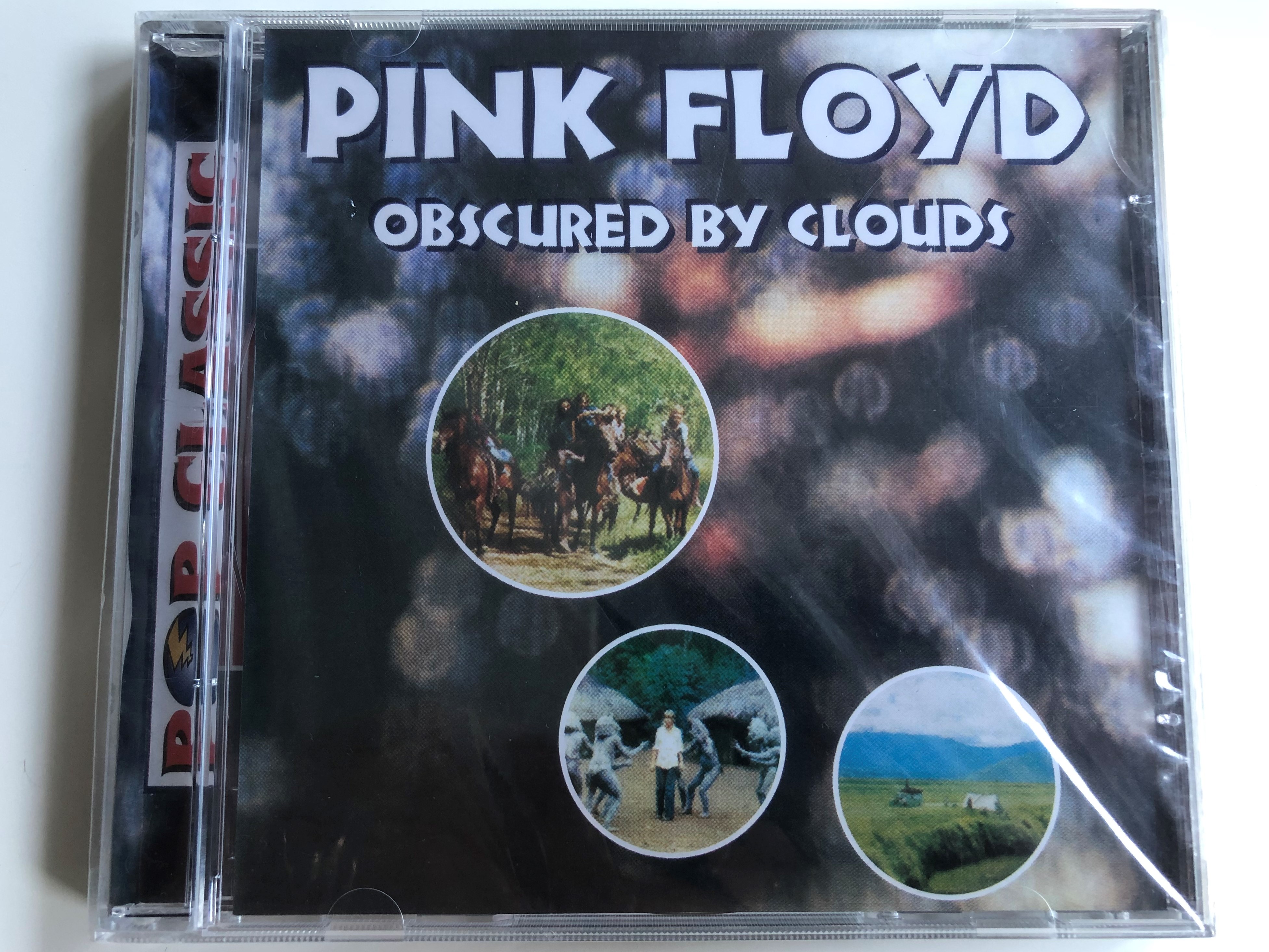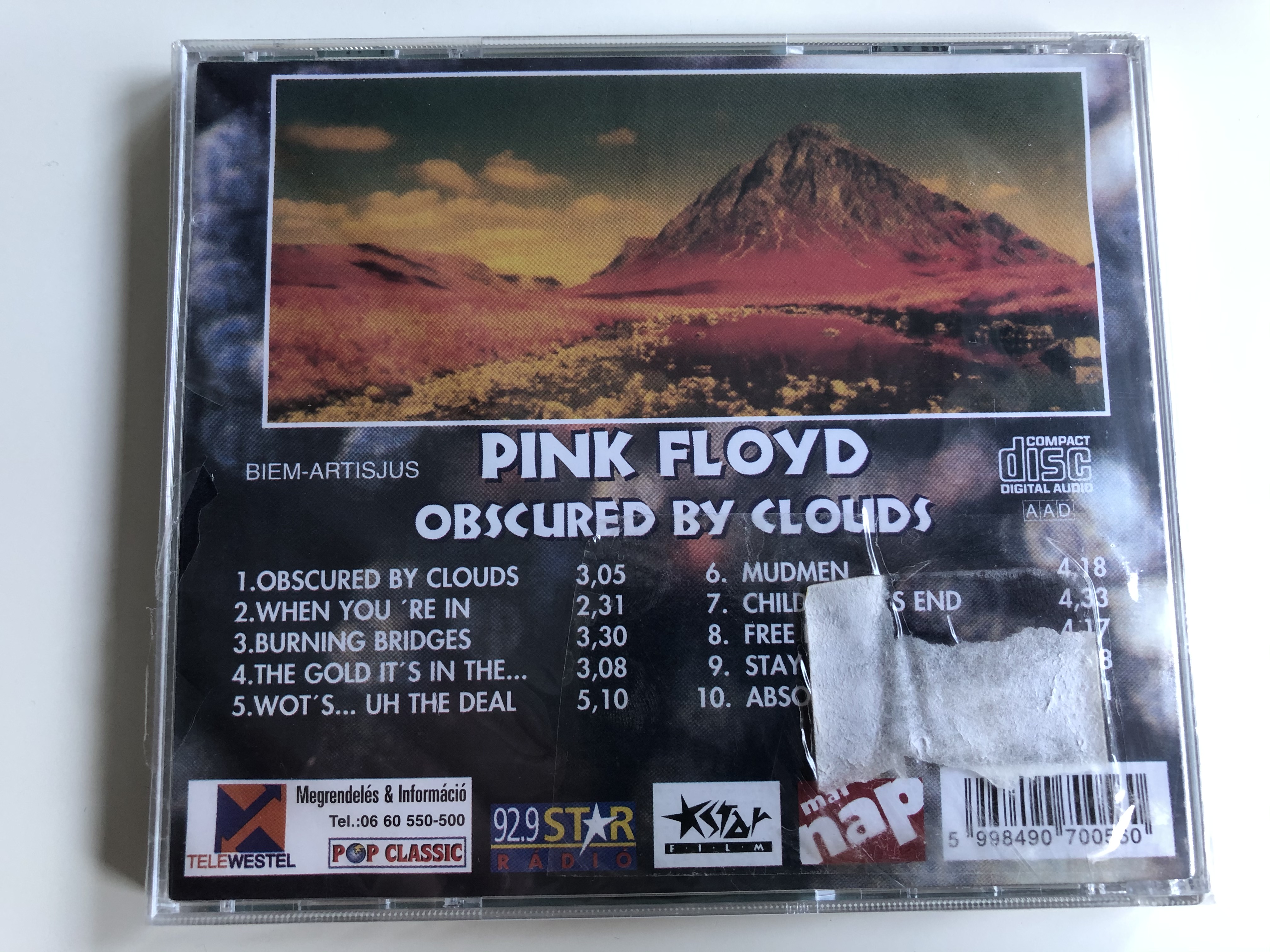Description
Pink Floyd – Obscured By Clouds / Pop Classic / Euroton Audio CD
EUCD-0056
UPC 5998490700560
Obscured by Clouds is the seventh studio album by the English progressive rock band Pink Floyd, released on 2 June 1972 by Harvest and Capitol Records. It is based on their soundtrack for the French film La Vallée, by Barbet Schroeder. It was recorded in two sessions in France, while they were in the midst of touring, and produced by the band members.
The album is shorter than some of their previous material, and makes heavy use of the acoustic guitar. Lyrically, the songs centre around love, a common theme in the film it was inspired by. The album's only single was "Free Four". Obscured by Clouds has been seen as a stopgap for the band, who had started work on their next album, The Dark Side of the Moon (1973). The work is often overlooked in the band canon, primarily because of the success of their later material. Nevertheless, the album reached number six in the UK and number 46 in the US, and retrospective opinions from both fans and critics have been positive, with some critics noting the similarities to their later material.
Tracklist:
1 Obscured By Clouds 3:05
2 When You're In 2:31
3 Burning Bridges 3:30
4 The Gold It's In The... 3:08
5 Wot's...Uh The Deal 5:10
6 Mudmen 4:18
7 Childhood's End 4:33
8 Free Four 4:17
9 Stay 4:08
10 Absolutely Curtains 5:51
The songs on Obscured by Clouds are all short and economical, in contrast to the lengthy instrumentals found on other Floyd albums. A strong country music influence was present on several tracks, with prominent use of acoustic guitar. The album also featured the VCS 3 synthesiser, which Wright had purchased from the BBC Radiophonic Workshop.
The title track made prominent use of the VCS 3, and featured Mason playing electronic drums. The following track, "When You're In" is similar in style; its title came from a phrase said by roadie Chris Adamson. The two pieces were played back-to-back live in late 1972 and on the 1973 tours. They were also part of the set used for the group's collaboration with Roland Petit and the Ballet National de Marseille at the Palais de Sports, Paris, in early 1973.
"Burning Bridges" was one of two songwriting collaborations on the album between keyboardist Richard Wright (who wrote the music) and Waters (who wrote the lyrics). "Wot's... Uh the Deal?" was a straightforward acoustic piece. It was never performed live by Pink Floyd, but Gilmour resurrected the piece for his solo tour in 2006. One of these performances features on Gilmour's 2007 DVD Remember That Night[12] and also the vinyl version of his 2008 live album, Live in Gdańsk.
"Childhood's End" was the last song Pink Floyd released to have lyrics written by Gilmour until the release of A Momentary Lapse of Reason in 1987. The title may have been derived from the Arthur C. Clarke novel of the same name. It was performed live at a few gigs in late 1972 and early the following year; the drum pattern opening the track was recycled for "Time" on The Dark Side of the Moon.
"Free Four" was the first Pink Floyd song since "See Emily Play" to attract significant airplay in the US, and the second (after "Corporal Clegg" from A Saucerful of Secrets) to deal with the death of Waters' father during World War II. The title is derived from the count-in "One, two, 'free, four!", spoken in a Cockney accent. The track was released as a single in the US, as the band felt it was suitable for AM radio.
"Stay" was written and sung by Wright, with lyrics by Waters. It is superficially a love song, except the protagonist cannot remember the girl's name, suggesting she might have been a groupie.
"Absolutely Curtains", the closing instrumental on the album, ends with a recording of the Mapuga tribe, as seen in the film.


























